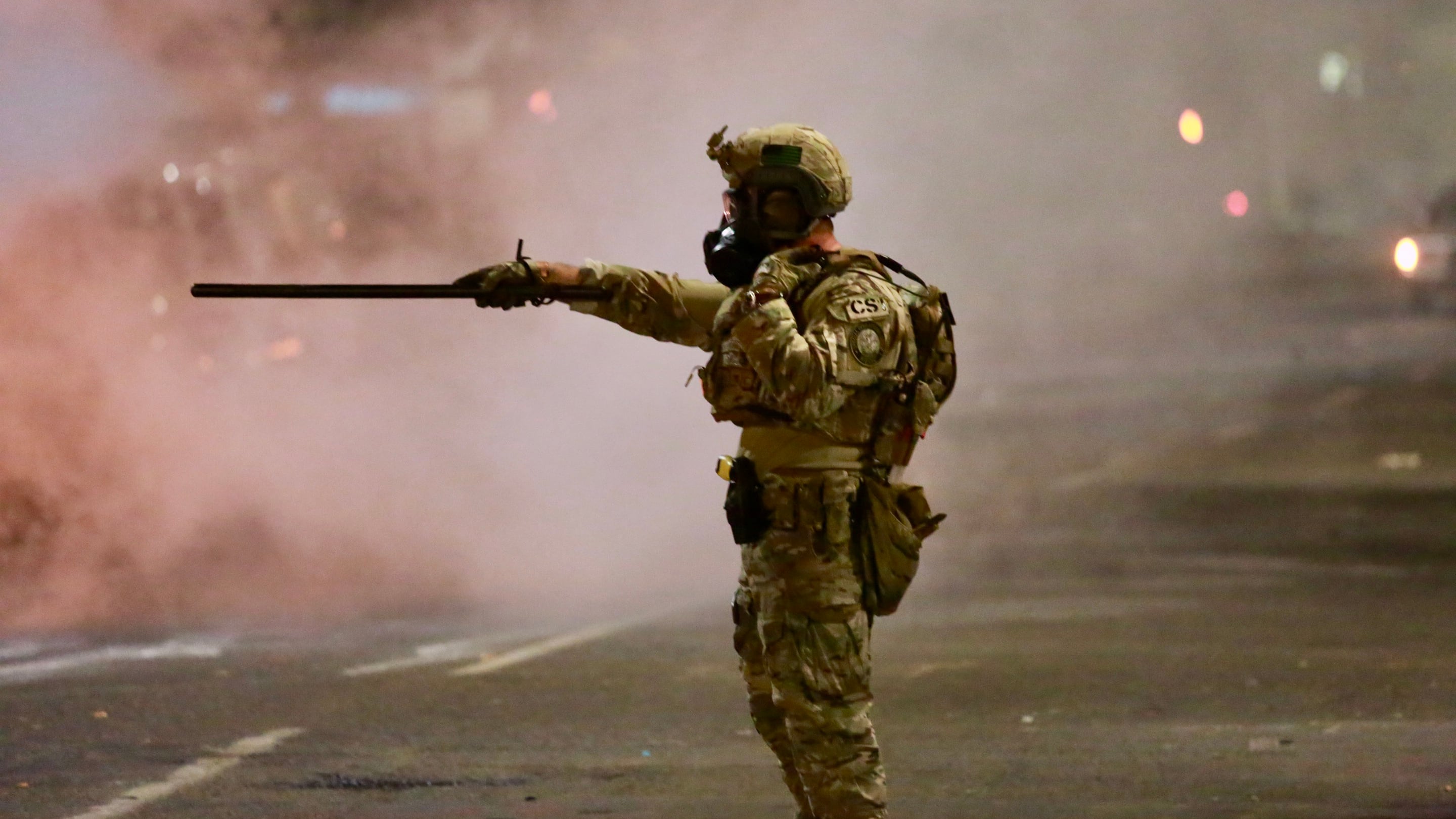The 2007 Oregon Supreme Court decision in State v. Sandoval established a person's justification in defending their own life with deadly force, without a duty to retreat. Would that apply if you were defending yourself from, say, a federal agent? —A Concerned Citizen
There are two kinds of rights, Citizen: the kind you have on paper, and the kind you can actually enforce.
For example, it's technically illegal under Russian law for Vladimir Putin to make your family disappear—but good luck obtaining injunctive relief if it happens.
Similarly, while there may be some excruciatingly narrow legal circumstances under which it's lawful to use force against an officer, doing so in practice will probably just get you killed, thrown in prison or both.
We Teva-shod liberals tend to associate "stand your ground" laws with Florida, Texas and other backward places where you can't get carrot juice at the gas station, so it may come as a surprise to learn that this MAGA hat of legal doctrines also applies in Oregon. That said, it's pretty obviously not designed to be used against cops.
For starters, it's illegal to resist arrest in Oregon, period. It doesn't matter if the arrest is lawful or not. A cop can arrest you because you voted for Walter Mondale; it's still your duty to go quietly and let a judge decide later whether the officer was justified.
It is nominally true you have a right to self-defense if an officer uses what the court later determines to be excessive force. As you can scarcely have failed to notice, however, in practice what is considered excessive is viewed from the officer's perspective. As above, good luck. Unless the officer is literally attempting to murder an innocent person in their sleep, the call is going to go their way.
Even then, it's a crapshoot! Kenneth Walker, Breonna Taylor's boyfriend, returned fire when unidentified assailants (who later turned out to be cops) started shooting up his bedroom and was charged with attempted murder of a police officer for his trouble. Those charges were eventually dropped, but only after the incident had become a national scandal.
In short, Citizen, while you may have a legal right to stand your ground, winning the argument is cold comfort if you're dead. Settle this one at the ballot box.

